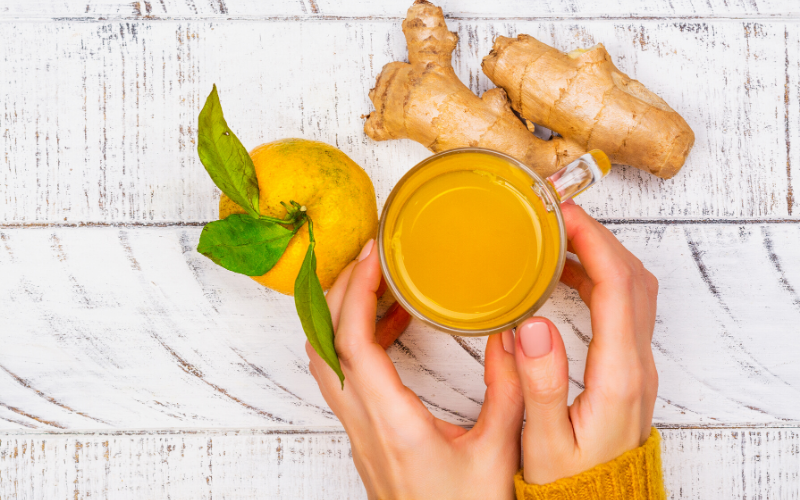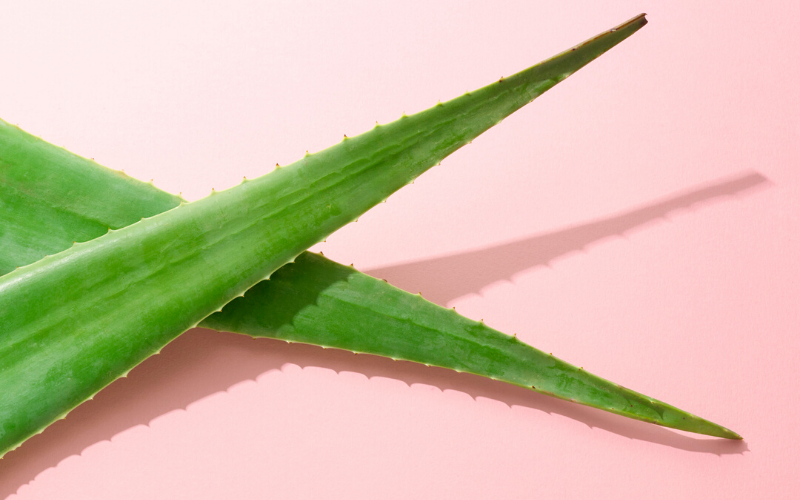As a dermatologist, one of the most common skin disease complaints I hear is about psoriasis.
Psoriasis flare-ups are not only painful, but can cause embarrassment and hopelessness. However, no matter how you might feel, hope is not lost!
So, what can you do naturally to promote healthy skin and clear up the affected area?
If you are one of over 7.4 million Americans experiencing plaque psoriasis, psoriatic arthritis, or one of the other types of psoriasis, you’re looking for home remedies and treatment of psoriasis that works.
While the temptation may be strong to reach for the nearest cream or pill, there are other options.
Unlike quick fixes for psoriasis, most natural remedies provide relief with not only fewer side effects, but longer-lasting positive changes.
We’ll go over what triggers a psoriasis flare-up, what the outlook is, and the six best natural remedies for psoriasis according to scientific evidence.
Why Natural Treatments Treat Psoriasis at the Root
Not all treatment options are created equally, because natural remedies can treat psoriasis at the root instead of simply dealing with symptoms.
Though we see it manifest as red, scaly skin, psoriasis is actually an autoimmune disease that is triggered by inflammation. To treat moderate or severe psoriasis, you should address the root causes of this skin condition.
Use substances with anti-inflammatory properties and that strengthen the immune system, and not simply soothe dry skin through topical treatment. While certain agents always trigger inflammation, like sugar, each individual is different.
You may want to investigate and begin avoiding your personal dietary or environmental triggers, like dairy, gluten, trans fats, stress, and other common irritants to the skin and gut.
In fact, science has discovered a link between poor gut health and psoriasis. Avoiding these triggers that feed inflammation can improve severe or moderate psoriasis symptoms over time and lead to healthier digestive and immune system.
As you cut out inflammatory triggers, what other natural remedies for psoriasis can help to reduce flare-ups, improve immune health, and heal gut issues? Here are my six of my top recommendations.
1. Here Comes The Sun
Some sunlight can do more than you’d guess to naturally treat your flare-ups. The sun’s ultraviolet light, particularly UVB rays, may provide therapeutic benefits for psoriasis treatment. Additionally, the vitamin D it offers has also been shown to help fight psoriasis.
Certain lasers called “excimer lasers” can provide these specific UVB rays. These are preferred over just sunlight, because sunlight contains both UVA & UVB rays — which may result in aging and increased skin cancer risk. Excimer lasers may be available in your dermatologist’s office so talk to them about this treatment option.
Vitamin D prescription creams are another treatment option that your dermatologist may offer. Additionally, you may want to get your vitamin D levels measured with a blood test to see where they are currently. Your dermatologist can help guide you to the right supplement dose to make sure your internal vitamin D levels are optimized.
And a friendly reminder, be mindful of your sun exposure and don’t get sunburned. Be sure to use sunscreen and limit exposure of unprotected skin on average to approximately 10 minutes per day (depending on your skin type, skin cancer history and geographic location) — in order to help keep your skin safe.
2. Stress Less
One of the simplest natural remedies for psoriasis is to reduce stress.
Clinical studies have indicated that stress wreaks havoc on your immune system, which can worsen psoriasis flare-ups. Stress can also negatively impact digestive health, which already is decreased in some cases of psoriasis.
One more interesting note: patients who meditate before phototherapy experience better results. Clearly, less stress can create a better bodily environment for psoriasis to heal. So follow my tips to de-stress and give your immune system a break.
3. Anti-Inflammatory Diet
The correlation becomes clearer with each passing year of research: what you eat is one of the largest factors in your personal health.
Eating a diet rich in anti-inflammatory foods like curcumin (found in the spice turmeric), omega-3 fatty acids (found in salmon or fish oil), and olive oil may potentially relieve psoriasis symptoms.
In addition, bone broth, kombucha, sauerkraut, and other probiotic foods can potentially help reset your microbiome and heal the intestinal permeability problems linked to this skin condition.
One study had over 40% of patients reporting a positive skin difference after simply adding in omega-3 fatty acids (fish oil supplements) or probiotics.
These edible natural remedies can treat psoriasis from the inside out — and hey, better gut health means better skin!
4. Soothe The Scalp
Itchy skin on the scalp is another common side effect of psoriasis.
We are just beginning to understand the amazing healing effects of CBD on psoriasis and other inflammatory skin conditions — such as acne and eczema. Endocannabinoid receptors, primarily found in our brain and central nervous system, are also present in our skin.
Tea tree oil is a popular antidote to itchy scalp issues that may help psoriasis, and should be diluted with a carrier oil when applied on the skin.
Consider finding a natural shampoo that includes this ingredient, but steer clear of parabens, fragrances, or silicones that can make irritated skin even more upset.
5. Soak It Up
Dead Sea salts can have a positive effect on outbreaks of psoriasis, clearing 35% of psoriasis in one exciting clinical trial.
Epsom salt baths are similarly helpful in relieving stress and potentially locking in moisture in the skin. While there is not a large body of research backing these baths, preliminary findings are promising.
Don’t take your baths too hot in order to avoid irritating your flare-ups, and be sure to use a favorite moisturizer shortly after the bath to continue locking in hydration.
6. Hello, Aloe
Aloe vera is an effective topical treatment included in natural remedies for psoriasis. Researchers found that a topical treatment of 0.5% aloe vera cleared almost 83% of psoriatic plaques, and it can also be effective in moisturizing dry skin.
Look for organic aloe vera gel, and avoid anything made with extra chemicals or ingredients that could further irritate the skin condition.
Outlook for Psoriasis
Every case of psoriasis is different, since there are a range of several types of psoriasis and the cases can range from mild to severe.
Thankfully, the National Psoriasis Foundation says that “health care providers becoming more aware of the impact psoriasis can have on a person’s quality of life.” As research and treatment improve, so does the outlook for psoriasis.
While there’s no single “cure” for psoriasis, it is absolutely possible to go into “remission.” With careful, holistic treatment of both internal and external issues, symptoms may well disappear.
Functional and natural remedies for psoriasis are a fabulous jumping off point, but some severe cases of psoriasis may need additional treatments such as topical corticosteroids, retinoids, or other prescription medications. That doesn’t mean that your natural remedies are pointless, but rather, that they need some concentrated help.
Some oral or injected medications may also be prescribed for serious cases or outbreaks. Despite these more intense methods, changes in lifestyle and triggers will likely still help your symptoms improve.
I encourage you to do your best at reducing your inflammation and strengthening your immune system.As you treat individual flare-ups, over time you will see a reduction in your psoriasis with these natural remedies.
Sources
- Weger, W. (2010). Current status and new developments in the treatment of psoriasis and psoriatic arthritis with biological agents. British journal of pharmacology, 160(4), 810-820. Abstract: https://www.ncbi.nlm.nih.gov/pubmed/20590580
- Rachakonda, T. D., Schupp, C. W., & Armstrong, A. W. (2014). Psoriasis prevalence among adults in the United States. Journal of the American Academy of Dermatology, 70(3), 512-516. Abstract: https://www.ncbi.nlm.nih.gov/pubmed/24388724
- Ayala-Fontánez, N., Soler, D. C., & McCormick, T. S. (2016). Current knowledge on psoriasis and autoimmune diseases. Psoriasis (Auckland, NZ), 6, 7. Abstract: https://www.ncbi.nlm.nih.gov/pubmed/29387591
- Della Corte, K. W., Perrar, I., Penczynski, K. J., Schwingshackl, L., Herder, C., & Buyken, A. E. (2018). Effect of dietary sugar intake on biomarkers of subclinical inflammation: a systematic review and meta-analysis of intervention studies. Nutrients, 10(5), 606. Full text: https://www.ncbi.nlm.nih.gov/pmc/articles/PMC5986486/
- Humbert, P., Bidet, A., Treffel, P., Drobacheff, C., & Agache, P. (1991). Intestinal permeability in patients with psoriasis. Journal of dermatological science, 2(4), 324-326. Abstract: https://www.ncbi.nlm.nih.gov/pubmed/1911568/
- Van Weelden, H., Baart De La Faille, H., Young, E., & Van der Leun, J. C. (1988). A new development in UVB phototherapy of psoriasis. British Journal of Dermatology, 119(1), 11-19. Abstract: https://www.ncbi.nlm.nih.gov/pubmed/3408653
- Reichrath, J., Zouboulis, C. C., Vogt, T., & Holick, M. F. (2016). Targeting the vitamin D endocrine system (VDES) for the management of inflammatory and malignant skin diseases: An historical view and outlook. Reviews in Endocrine and Metabolic Disorders, 17(3), 405-417. Abstract: https://www.ncbi.nlm.nih.gov/pubmed/27447175
- Lee, E., Koo, J., & Berger, T. (2005). UVB phototherapy and skin cancer risk: a review of the literature. International journal of dermatology, 44(5), 355-360. Abstract: https://www.ncbi.nlm.nih.gov/pubmed/15869531
- Glaser, R., & Kiecolt-Glaser, J. (2009). Stress damages immune system and health. Discovery medicine, 5(26), 165-169. Abstract: https://www.ncbi.nlm.nih.gov/pubmed/20704904
- Hunter, H. J. A., Griffiths, C. E. M., & Kleyn, C. E. (2013). Does psychosocial stress play a role in the exacerbation of psoriasis?. British Journal of Dermatology, 169(5), 965-974. Abstract: https://www.ncbi.nlm.nih.gov/pubmed/23796214
- Konturek, P. C., Brzozowski, T., & Konturek, S. J. (2011). Stress and the gut: pathophysiology, clinical consequences, diagnostic approach and treatment options. J Physiol Pharmacol, 62(6), 591-599. Abstract: https://www.ncbi.nlm.nih.gov/pubmed/22314561
- Kabat-Zinn, J., Wheeler, E., Light, T., Skillings, A., Scharf, M. J., Cropley, T. G., … & Bernhard, J. D. (1998). Influence of a mindfulness meditation-based stress reduction intervention on rates of skin clearing in patients with moderate to severe psoriasis undergoing photo therapy (UVB) and photochemotherapy (PUVA). Psychosomatic medicine, 60(5), 625-632. Abstract: https://www.ncbi.nlm.nih.gov/pubmed/9773769
- Jolayemi, A. T., & Ojewole, J. A. O. (2013). Comparative anti-inflammatory properties of Capsaicin and ethylaAcetate extract of Capsicum frutescens linn [Solanaceae] in rats. African health sciences, 13(2), 357-361. Abstract: https://www.ncbi.nlm.nih.gov/pubmed/24235936
- Hewlings, S. J., & Kalman, D. S. (2017). Curcumin: a review of its’ effects on human health. Foods, 6(10), 92. Full text: https://www.ncbi.nlm.nih.gov/pmc/articles/PMC5664031/
- Carrion-Gutierrez, M., Ramirez-Bosca, A., Navarro-Lopez, V., Martinez-Andres, A., Asín-Llorca, M., Bernd, A., & de la Parte, J. F. H. (2015). Effects of Curcuma extract and visible light on adults with plaque psoriasis. European Journal of Dermatology, 25(3), 240-246. Abstract: https://www.ncbi.nlm.nih.gov/pubmed/26066761
- Calder, P. C. (2017). Omega-3 fatty acids and inflammatory processes: from molecules to man. Biochemical Society Transactions, 45(5), 1105-1115. Abstract: https://www.ncbi.nlm.nih.gov/pubmed/28900017
- Wu, A. G., & Weinberg, J. M. (2019). The Impact of Diet on Psoriasis. Cutis, 104(2), 7-10. Abstract: https://www.ncbi.nlm.nih.gov/pubmed/31634384
- Humbert, P., Bidet, A., Treffel, P., Drobacheff, C., & Agache, P. (1991). Intestinal permeability in patients with psoriasis. Journal of dermatological science, 2(4), 324-326. Abstract: https://www.ncbi.nlm.nih.gov/pubmed/1911568
- Afifi, L., Danesh, M. J., Lee, K. M., Beroukhim, K., Farahnik, B., Ahn, R. S., … & Liao, W. (2017). Dietary behaviors in psoriasis: patient-reported outcomes from a US national survey. Dermatology and therapy, 7(2), 227-242. Full text: https://www.ncbi.nlm.nih.gov/pmc/articles/PMC5453925/
- Pazyar, N., & Yaghoobi, R. (2012). Tea tree oil as a novel antipsoriasis weapon. Skin pharmacology and physiology, 25(3), 162-163. Abstract: https://www.ncbi.nlm.nih.gov/pubmed/22473218
- Halevy, S., Giryes, H., Friger, M., & Sukenik, S. (1997). Dead sea bath salt for the treatment of psoriasis vulgaris: a double-blind controlled study. Journal of the European Academy of Dermatology and Venereology, 9(3), 237-242. Abstract: https://www.sciencedirect.com/science/article/pii/S0926995997001335
- Syed, T. A., Ahmad, S. A., Holt, A. H., Ahmad, S. A., Ahmad, S. H., & Afzal, M. (1996). Management of psoriasis with Aloe vera extract in a hydrophilic cream: a placebo‐controlled, double‐blind study. Tropical Medicine & International Health, 1(4), 505-509. Abstract: https://www.ncbi.nlm.nih.gov/pubmed/8765459
- Dal’Belo, S. E., Rigo Gaspar, L., & Berardo Gonçalves Maia Campos, P. M. (2006). Moisturizing effect of cosmetic formulations containing Aloe vera extract in different concentrations assessed by skin bioengineering techniques. Skin Research and Technology, 12(4), 241-246. Abstract: https://www.ncbi.nlm.nih.gov/pubmed/17026654






